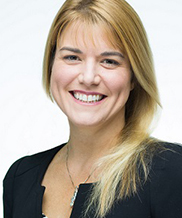Human 2.0 – The Future of Sense Making
 Amy Kruse, Human 2.0 – The Future of Sense Making. Humans are unparalleled sense-making machines. Try as we might, there is no substitute (yet) for the human brain. At the same time, the pace of information and technological change has increased, and shows no sign of slowing. Throughout history, we have relied on technology to increase our performance and effectiveness, to great success. However, technological change is now accelerating so quickly, the human brain can no longer keep pace. Our brains have not experienced the same “upgrade” that machines have enjoyed. Compounding this issue, technology itself creates cognitive overload. How does the human sense-making machine meet this challenge? It is time to do the same thing with our wetware that we do with our hardware. To meet the sense-making challenges of the future we need to upgrade the human brain. Together we will explore the amazing features of the human brain and how we can further enhance our senses to meet the challenges of the modern world.
Amy Kruse, Human 2.0 – The Future of Sense Making. Humans are unparalleled sense-making machines. Try as we might, there is no substitute (yet) for the human brain. At the same time, the pace of information and technological change has increased, and shows no sign of slowing. Throughout history, we have relied on technology to increase our performance and effectiveness, to great success. However, technological change is now accelerating so quickly, the human brain can no longer keep pace. Our brains have not experienced the same “upgrade” that machines have enjoyed. Compounding this issue, technology itself creates cognitive overload. How does the human sense-making machine meet this challenge? It is time to do the same thing with our wetware that we do with our hardware. To meet the sense-making challenges of the future we need to upgrade the human brain. Together we will explore the amazing features of the human brain and how we can further enhance our senses to meet the challenges of the modern world.
Amy Kruse is the Chief Scientific Officer of the Platypus Institute, an applied neuroscience research organization that translates cuttingedge neuroscience discoveries into practical tools and programs that enhance the human experience. Dr. Kruse’s primary focus at the Platypus Institute is a project entitled “Human 2.0” – a multi-faceted initiative that helps selected individuals and teams leverage neurotechnology to generate meaningful competitive advantages. Previously, Dr. Kruse was VP and CTO of Cubic Global Defense, where she oversaw the company’s research and development (R&D) programs, as well as a government civilian Program Manager at the Defense Advanced Research Projects Agency (DARPA), where she created and oversaw the Agency’s first performance-oriented neuroscience program. Dr. Kruse is a member of several defense panels and advisory boards for organizations including the National Academies and the Defense Science Board. She is also the author of numerous scientific papers, chapters, and articles